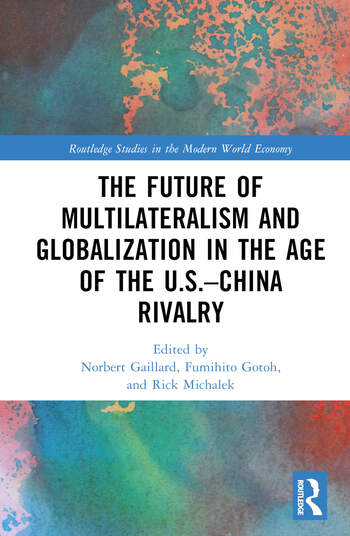China, technical standardization, and the future of globalization

As the global economy sits at a crossroad between connectivity-driven globalization and strategic decoupling, technical standardization provides a valuable measure of where we are headed.
Long thought of as a benign, apolitical defining of baseline processes, products, and services, standardization has ballooned into a field of geopolitical competition, particularly as the United States, China, Europe, and others wrestle over technological leadership in the industries of the future. Driven largely by private enterprise initiatives, the West has long held the high ground in setting technical standards. While China is a newcomer to the field, it has grand ambitions of becoming a premier purveyor of global standards and has laid the groundwork for building out a more China-centered ecosystem through efforts such as the Belt and Road Initiative. In this context, the “twin transitions” toward a low-carbon and digital future, where many standards remain to be set, offer an opportunity for Beijing. Ultimately, whether China chooses a collaborative path with the West on standards development, how the latter respond to China’s initiatives, and whether multistakeholder, consensus-based standardization processes can resist the push and pull of geopolitics will go a long way to determining the degree of cohesion and fragmentation in the global economy for decades to come.

Available in:
Themes and regions
ISBN / ISSN
Share
Related centers and programs
Discover our other research centers and programsFind out more
Discover all our analysesJapan’s Takaichi Landslide: A New Face of Power
Prime Minister Sanae Takaichi has turned her exceptional popularity into a historic political victory. The snap elections of February 8 delivered an overwhelming majority for the Liberal Democratic Party (LDP), driven by strong support from young voters, drawn to her iconoclastic and dynamic image, and from conservative voters reassured by her vision of national assertiveness. This popularity lays the foundation for an ambitious strategy on both the domestic and international fronts.
The U.S. Policy Toward Taiwan Beyond Donald Trump: Mapping the American Stakeholders of U.S.-Taiwan Relations
Donald Trump’s return to the White House reintroduced acute uncertainty into the security commitment of the United States (U.S.) to Taiwan. Unlike President Joe Biden, who repeatedly stated the determination to defend Taiwan, President Trump refrains from commenting on the hypothetical U.S. response in the context of a cross-Strait crisis.

China’s Strategy Toward Pacific Island countries: Countering Taiwan and Western Influence
Over the past decade, China has deployed a diplomatic strategy toward the Pacific Island Countries (PICs). This strategy pursues two main objectives: countering Taiwan's diplomatic influence in the region and countering the influence of liberal democracies in what Beijing refers to as the "Global South."

Opening up the G7 to South Korea to Address Contemporary Global Challenges
The G7’s global influence has diminished as powers like China reshape international governance through initiatives such as BRICS and the Shanghai Cooperation Organisation (SCO). With the G7 now representing just 10 per cent of the world’s population and 28 per cent of global GDP, its relevance is increasingly questioned.










